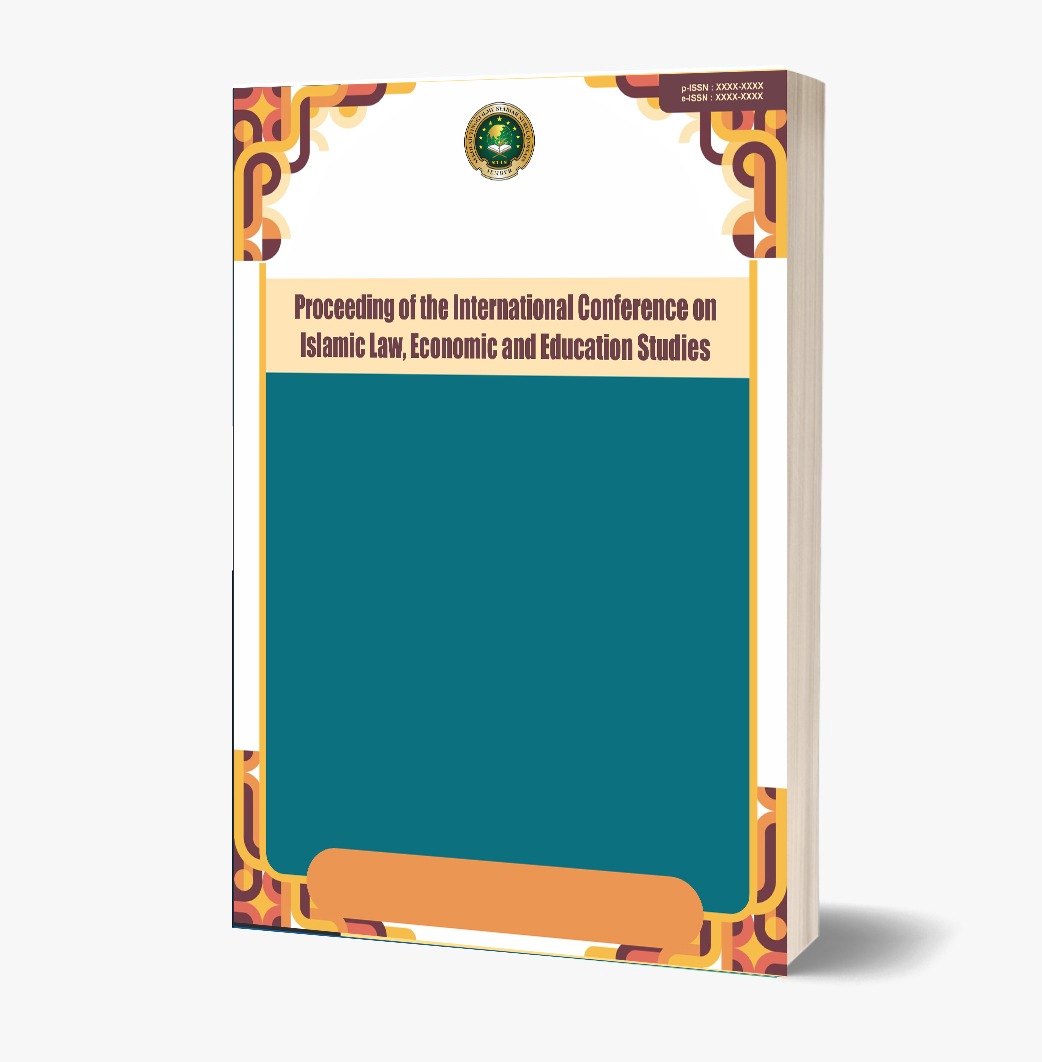Hisbah Perspective of Maslahah: Market Supervision in the Time of the Prophet Muhammad SAW as a Role Model for Modern Economics
Keywords:
Hisbah, Maslahah, Sharia PrinciplesAbstract
The market is an important element in the economy that allows transactions between sellers and buyers, and is a place where economic mechanisms occur in society. In Islam, buying and selling activities have important values and are regulated to avoid unfair practices, such as usury and fraud in weighing. The market is vulnerable to deviations, such as fraudulent weighing and misuse of product standards, which can harm consumers. Therefore, supervision through institutions such as Hisbah is crucial in ensuring fairness and compliance with sharia principles. This study uses a literature study method with a comparative approach, comparing the principles of Hisbah during the time of the Prophet Muhammad SAW with the modern market supervision system. The aim is to identify the relevance of these principles in the current economic context. Hisbah during the time of the Prophet Muhammad functioned as a market supervisor, ensuring transparency, preventing fraud, and ensuring healthy competition based on Islamic law. The function and concept of Hisbah are important references in understanding fair market supervision in the modern economy. The findings of this study indicate that the principles of Hisbah applied during the time of the Prophet Muhammad are still relevant and can be adapted in modern market supervision to create economic justice based on Islamic law. The existence of a supervisory institution such as Hisbah which plays a role in maintaining market mechanisms, ensuring the availability of goods, and preventing deviations, shows how important control is in a competitive market so that it runs in accordance with the values of justice and social welfare.
References
Abdullah, A. F. (2018). The authority and role of the Hisbah region in monitoring markets and the economy in the Siyasah Fiqh perspective. Journal of Social Research on Religion, 3(2).
Abdullah, A. M. (2015). Comparison between Hisbah functions and institutions: Modern economic supervision. (Thesis, Mualamat [Islamic Economics], 151).
Ahmad, I. (2022). Implementation of the Maslahah Mursale concept in Islamic economics according to Islamic figures and Jumhur Ulama. Economina Journal, 1(3), 563-577.
Arifah, U., Baroroh, N., & Muttoharoh, S. (2023). Hisbah institution in Islamic business economics. Labatila: Journal of Islamic Economics, 7(01), 55-64.
Bahri, S. B. (2024). Wilayatul Hisbah: An instrument for enforcing Amar Ma'ruf Nahi Munkar in Islam. Elfaqih Journal, 1(1), 61-74.
Creswell, J. W. (2013). Research design: Qualitative, quantitative, and mixed methods approaches. California: SAGE Publications.
Fauzi, H., Eka, B., & Diyani, R. (2021). Developing a state’s economy based on Sharia law: Hisbah in modern times, can it? Al-Iqtishady: Journal of Sharia Economics, 2(1).
Hajar, E. S. (2021). Public supervisory institution (Hisbah) according to Ibn Taimiyah. An Nawawi, 1(2), 71-78.
Hasan, Z. (2022). Maslahah theory in Islamic economics: Fikih Muamalah. Al Itmamiy Journal of Islamic Economic Law (Muamalah), 4(2), 65-81.
Islam, N. S. (2010). Ibn Taimiyah's thoughts on government intervention in market supervision. (Doctoral dissertation, Sultan Syarif Kasim State Islamic University, Riau).
Khoiruddin. (2010). Islamic market. Jurnal Asas, 2(2).
Lestari, D., Puspita, F. F., & Latifah, F. N. (2022). Comparative analysis of Hisbah institutions in the time of the Prophet Muhammad and the modern era based on the Islamic economic system. Al-Muamalat: Journal of Islamic Economics, 9(2), 84-92.
Mahadir, M. (2018). The role of government in supervising the market from an Islamic economic perspective. As-Salam Journal, 2, 171-178.
Moleong, L. J. (2015). Qualitative research methodology. Bandung: Remaja Rosdakarya.
Mujahidin, A. (2017). The existence of Hisbah institutions in history: Analysis of the role of Muhtasib in trade. Al-Fikra: Islamic Scientific Journal, 4(2), 119.
Noviyanti, R. (2015). Hisbah supervisory institution and its relevance to the National Sharia Council (DSN) and the Sharia Supervisory Board (DPS) in Indonesian Sharia banking. Millah: Journal of Religious Studies, 29-50.
Nugroho, B. A. (2023). Ibn Taimiyyah's thoughts on Al-Hisbah and its relevance to traditional market supervisory institutions. (Doctoral dissertation, IAIN Manado).
Rahmayana, R. (2023). Supervision system of the transportation service for intercity transportation within the province (AKDP) Aceh in the perspective of Al-Hisbah. (Doctoral dissertation, UIN Ar-Raniry Banda Aceh).
Romli, M. (2021). Positioning Hisbah in the market. Journal of Islamic Economics and Social, 4(2).
Rozi, F. (2019). Hisbah in Islam. Attanwir: Journal of Islam and Education, 10(1), 1-12.
Sayuti, S. (2024). The concept of Wilayatul Hisbah according to Imam Al-Mawardi. Siyasah Wa Qanuniyah: Ma'had Aly Raudhatul Ma'arif Scientific Journal, 2(1), 51-60.
Sedarmayanti, & Hidayat, S. (2018). Research methodology. Bandung: CV. Mandar Maju.
Sugiyono. (2014). Quantitative, qualitative, and R&D research methods. Bandung: Alfabeta.
Sugiyono. (2018). Research methodology. Jakarta: Rajawali Press.





